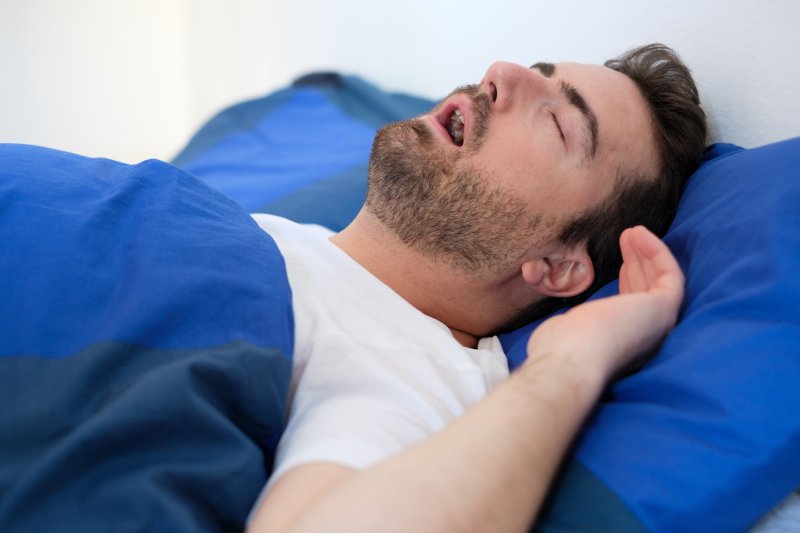
Do you frequently find yourself waking up several times each night? Are you gaining weight despite your best efforts to maintain a healthy diet? If you suffer from OSA (Obstructive Sleep Apnea), you could be having up to 30 sleep disruptions each night. There’s a good chance that this is also exacerbating your unwanted weight gain. Here’s what we know about the link between the two and what you can do to break the cycle.
How Sleep Apnea Causes Weight Gain
There is evidence to suggest that sleep apnea can cause weight gain. That’s because a lack of sleep leads to decreased leptin (an appetite suppressing hormone), and increased ghrelin (an appetite-inducing hormone). In other words, you may find yourself feeling hungrier or craving more calorie dense foods if you routinely miss out on sleep.
But even if you aren’t overeating, research suggests that not getting enough sleep can make it more difficult to lose weight despite calorie restriction. This can be attributed to a lack of energy to exercise and metabolic changes.
How Weight Gain Causes Sleep Apnea
The connection goes both ways. It’s well known that individuals who are overweight are more likely to develop sleep apnea.
Why? Excess fat deposits in the neck (pharyngeal fat) can put pressure on the airway when someone is laying down, making it narrower. This means it’s easier for it to become blocked. This causes snoring—a primary symptom of sleep apnea. When this occurs, the air in your lungs can’t move properly because the airway is being cut off.
Having a larger abdominal girth can also be a cause. Fat compresses the lungs, reducing capacity and decreasing potential airflow.
Health Complications
People who suffer from sleep apnea can experience a wide range of additional health complications, including:
- Heart disease
- Type 2 Diabetes
- Hypertension
- Strokes
Sleep apnea mainly affects the heart, lungs, and metabolic systems. That’s because elevated carbon dioxide and glucose in the blood disrupts normal heart rhythms and the flow of oxygen.
Is There Treatment?
The use of a CPAP machine is the most common treatment for sleep apnea. The machine functions by delivering a stream of pressurized air into the mask of the wearer via a small tube connected to a motorized pump. The air pushes against blockages and makes breathing easier.
However, oral sleep appliances are often a preferred solution because they are less invasive and far more comfortable. Your dentist will be able to recommend options best suited to your needs.
Weight management is often treated separately from sleep apnea. Your doctor may recommend dietary changes, exercise regimes, medications, or weight loss surgery to combat weight gain.
You don’t need to struggle to get a good night’s sleep. Reach out to your dental sleep medicine doctor to learn more about your treatment options.
About the Author
Dr. Stampe is an expert in dental sleep medicine and is passionate about improving her patients’ lives by providing excellent care. She graduated as valedictorian from the Baylor College of Dentistry before going on to attend the Advanced Education in General Dentistry program. She is one of the youngest recipients of the Fellowship Award from the Academy of General Dentistry and is a member of the American Dental Association and the Texas Dental Association. If you have questions about sleep apnea treatments, visit her website or give her a call at (972)573-8258.
